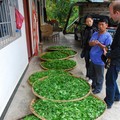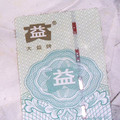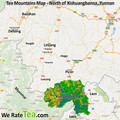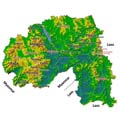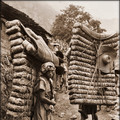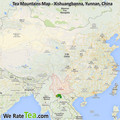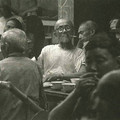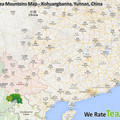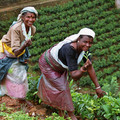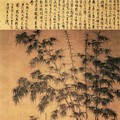 1 review
Added 14.12.2013 by Eternal Spring,
Tea status: [315] A
9321x
1 review
Added 14.12.2013 by Eternal Spring,
Tea status: [315] A
9321xCategory: Pu-erh
Country: China
Province: Yunnan
Harvest: 2004
Producer: Shi Kun Mu
Shop: Cha Wang Shop

Tags: Gushu , Sheng - Raw Puerh , Cake , Yibang , Tea from 2000 till 2004
Description:
This cake is one of the "four cakes set(Yiwu, Manzhuan, Menghai and Yibang)"which were produced by master Shi Kun Mu. Cakes have the same wrapper but different seal which is the name of mountain. Taiwanese master Shi Kun Mu is famous tea producer of highest quality ancient arbor puerh teas. He selects the materials personally and monitors production process from beginning to end.
This cake is made of pure spring acient arbor tea from Yibang mountain. Yibang mountain is one of the Old Six Famous Tea Mountains with long tea history. According to research, puer tea from Yibang was chosen to be tribute for the royal of Qing dynasty firstly. Then, Mansa(曼撒). Until the end of the Qing Dynasty, Yiwu was included in the "tribute tea" list. Yibang small leaves variety tea has slender leaves and silver buds. It is known for its refreshing sweetness and honeyed flavor.
Picked one bud/one leaves and one bud/two leaves. Traditional processing of "mao cha", stone pressed in Changtai Tea Factory (Changtai Tea Group) in Yiwu town. This cake stored in Kunming tea collector's warehouse.
Brewed tea have deep golden color and sweet aromas of honey, awakening the sense of smell and surprising the sense of taste. Well-balanced tea soup full of aromas and flavours of honey and cream. It´s not easy to tell all level of the taste. Mellow and smooth, honey sweet with fruity tones. Smell of cup or pitcher after drink is pleasant. Rare and excellent Yibang tea! After 7 years little aged, great to drink now but also for long term storage and gem of your puerh collection. One pretty good example of the current state of the tea market. New Yibang cakes come in a similar price range as 7 years old and clean stored ancient arbor tea cake from Shi Kun Mu. We are pleased that we can offer this wonderful tea!

 Shops
Shops












 Share on Facebook
Share on Facebook










